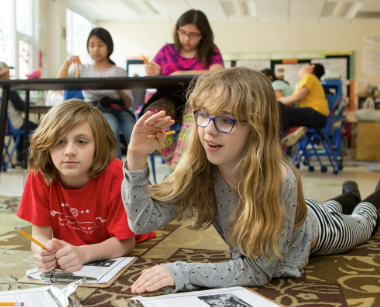Personalized learning is reshaping the way students engage with academic content. By adapting instruction to individual needs, interests, and learning styles, personalized learning helps students gain deeper understanding, stay motivated, and build the skills necessary to succeed on assessments. While test scores are only one measure of learning, evidence increasingly shows that personalized strategies can positively influence academic outcomes.
Addressing Individual Learning Needs
One of the most significant benefits of personalized learning is its ability to meet students where they are. By using diagnostic assessments and learner profiles, educators can:
- Identify knowledge gaps early
- Adjust content difficulty to match student readiness
- Provide targeted interventions and practice opportunities
This tailored approach ensures that students master foundational skills before progressing, which helps boost performance on both classroom and standardized tests.
Increasing Student Engagement
Engaged students are more likely to retain information and perform better academically. Personalized learning promotes engagement by:
- Offering choice in assignments and learning methods
- Incorporating topics that interest students
- Providing varied learning formats (videos, interactive tools, hands-on tasks)
When students are invested in their learning, they are more motivated to prepare for and succeed on assessments.
Supporting Self-Paced Mastery
Standardized instruction often moves too quickly or slowly for some students. Personalized learning allows students to move at their own pace, spending more time on challenging areas and advancing when they’re ready. This self-paced approach leads to:
- Stronger comprehension and retention
- Reduced test anxiety
- Higher accuracy and performance on assessments
Providing Continuous Feedback and Improvement
Technology-enhanced personalized learning environments often include real-time feedback mechanisms. These allow students to:
- Understand their strengths and areas for improvement
- Learn from mistakes before formal assessments
- Receive ongoing support to strengthen weak skills
This continuous feedback cycle builds confidence and readiness for tests.
Aligning Instruction with Standards
Personalized learning doesn’t mean unstructured learning. Educators can design personalized pathways that align closely with academic standards and learning objectives. This ensures that students are not only learning in ways that suit them but also covering the content required for success on high-stakes assessments.
Developing Test-Taking Skills
Personalized learning can incorporate practice assessments, interactive quizzes, and simulations that mirror test formats. These tools help students:
- Get comfortable with different types of questions
- Build time management skills
- Practice test-taking strategies
Such preparation can significantly improve confidence and performance during actual exams.
Reducing Achievement Gaps
Because personalized learning targets each student’s unique needs, it has the potential to narrow achievement gaps. Students who might fall behind in traditional settings receive the additional time and support needed to meet learning benchmarks, resulting in stronger test outcomes across the board.
Conclusion
While test scores are just one metric of educational success, they remain important in evaluating student progress and school effectiveness. Personalized learning enhances student understanding, builds confidence, and promotes mastery—leading to improved test performance. By focusing on the individual, educators can help all students reach their potential, both on assessments and in lifelong learning.














